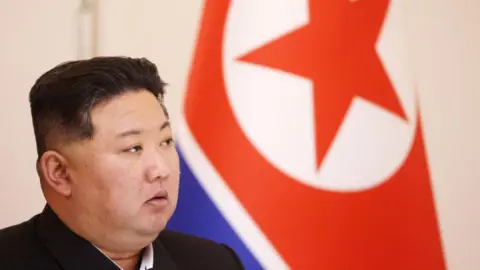A North Korean defector, Choi Min-kyung, is preparing to initiate legal action against the North Korean leader, Kim Jong Un, and four other officials for suffering abuses during her detention in their homeland. The lawsuit is scheduled to be filed imminently, marking a significant milestone—a North Korean-born defecting individual legally challenging the regime for the first time. This action has generated attention from human rights groups, with one based in South Korea assisting Choi in her pursuit of justice.
Choi’s troubling history began when she fled North Korea to China in 1997, a desperate escape from a regime notorious for its lack of basic human rights. However, her ordeal didn’t end there; in 2008, she was forcibly repatriated to North Korea. Once back in her homeland, Choi alleges that she endured severe forms of repression, including sexual abuse and torture, indicative of the systematic violations of human rights occurring within the regime. Such claims are reflective of ongoing reports from human rights organizations that highlight the belligerence and cruelty of the North Korean government towards its own citizens.
This upcoming lawsuit stands in the context of a historical backdrop where South Korean courts have previously ruled against North Korea regarding claims of abuse made by South Korean citizens. However, these rulings have generally been interpreted as symbolic, as North Korea has ignored them, maintaining a posture of denial pertaining to allegations of abuses presented by defectors. The case initiates a new chapter, not only in Choi’s fight for her rights but also as a potential catalyst for broader legal inquiries into the atrocities committed by the North Korean government.
Notably, the Database Center for North Korean Human Rights (NKDB), which is backing Choi’s case, also intends to bring her allegations before international entities such as the United Nations and the International Criminal Court (ICC). Choi articulately expressed her noble hope that her actions could pave the way for a restoration of freedom and human dignity for North Koreans still suffering under the oppressive regime—an ambition grounded in an aspiration for both justice and accountability.
Choi’s personal testimony is emblematic of the trauma experienced by many defectors; after having escaped a second time to South Korea in 2012, she has dealt with persistent psychological consequences and continues to rely on medication for her mental health. The grave impact of her experiences serves as a stark reminder of the personal toll of systemic human rights violations.
Hanna Song, the executive director of NKDB, emphasized the legal significance of pursuing criminal charges alongside civil actions. Previous legal cases primarily engaged with civil litigation alone, which often fell short of delivering profound accountability. The move to pursue criminal prosecution is an evolution in tactics intended to hold the North Korean regime directly accountable for its actions.
Historically, South Korean courts have issued rulings demanding reparations from North Korea, such as a 2023 court decision mandating the North to compensate three South Korean men forcibly conscripted into service during the Korean War, and a subsequent ruling in 2024 related to Korean Japanese defectors. These plaintiffs reported being lured to North Korea under misguided promises, only to find themselves trapped and exploited. While North Korean authorities have consistently failed to respond to these legal actions, advocates like Song argue that the court’s judgments provide necessary closure for the affected individuals, offering an official recognition of their harrowing experiences.
The broader implications of Choi’s case could ripple through international human rights dialogues, challenging the world to confront the ongoing violations perpetrated under Kim Jong Un’s regime. As noted by Song, what many victims truly seek is not solely monetary compensation but an acknowledgment of their pain. The forthcoming lawsuit represents not just personal reckoning for Choi Min-kyung but a long-awaited challenge to a regime that continues to evade accountability for its human rights abuses.
As this landmark case unfolds, it may spark further discussions on international human rights interventions and the role of global judicial bodies in holding oppressive regimes accountable.











